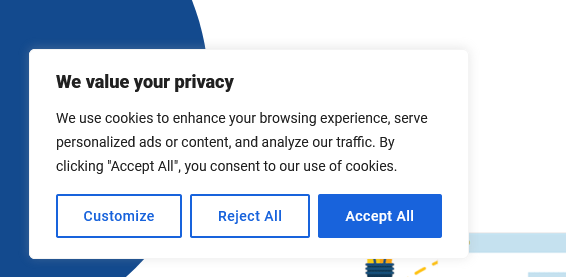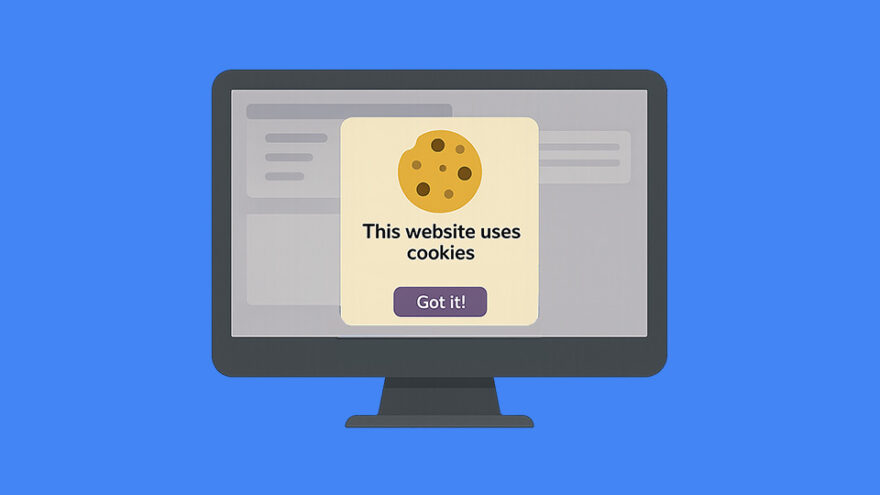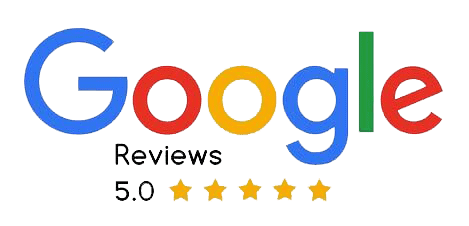Online privacy and consent are very important issues for today’s internet users. Anybody who has had their inbox flooded with spam or been followed around their favorite websites by personalized ads can attest to this. Due to various state and international laws, and significant media coverage, internet users are much more aware of how their data is being tracked online today. This is why many people take the additional step of enabling ad blockers or using private browsing modes to prevent cookies and other tools from collecting their data.
The legal requirements for cookie notification and consent are complex, but the bottom line is that it is best practice for every modern business website to have this feature. We have researched several solutions for cookie consent and found CookieYes to be the best option on the market. Here is some helpful information on cookie consent and how CookieYes will work with your website.
What Are Cookies?
You’ve been asked to ‘accept all cookies’ dozens if not hundreds of times by now while browsing the web. But what are they? Cookies are small pieces of data that websites store on a user’s browser when they visit. Almost every website on the internet uses them, and they serve various purposes:
- Session Management: They help in keeping users logged in, tracking shopping cart contents, and maintaining other session-specific information.
- Personalization: Cookies remember user preferences from previous visits, such as language, location, or theme settings, to tailor content accordingly.
- Tracking: They help websites understand user behavior by tracking their movement across different pages or even multiple sites. Analytics cookies might track which pages you visited, how long you stayed, and the route you took through a site. This aids in analysis and improves user experience.
- Targeted Advertising: Cookies can monitor user’s browsing habits, thus allowing advertisers to display more relevant ads to individual users. Advertising cookies could track which ads you’ve seen and clicked on, or products you’ve looked at, to display relevant ads later.
Cookies can be first-party (placed on a user’s device by the website itself) or third-party (placed by an advertiser or other outside source.) Cookies themselves are not inherently harmful, but they do store users’ information which could be sold, used for malicious intent, or accessed by any hackers who breach the website. For this reason, cookie notification and consent has become a priority for lawmakers.
In particular, third-party cookies are on their way out as browsers like Google Chrome have announced that they will be phasing them out within the next few years.
Does the US Require Cookie Consent?
Unlike the EU’s General Data Protection Regulation (GDPR), the United States does not currently have a federal law that requires cookie consent. However, there are five states that have passed their own laws: California, Virginia, Colorado, Utah, and Connecticut. Each of these laws has their own particular way of defining a customer and personal data. Some of these laws, in particular California’s CPRA (California Privacy Rights Act), give customers the right to opt out of sharing personal information, hence the need for all the ‘accept all cookies’ pop-ups.
So does your website need a cookie consent feature? Technically not, if you aren’t serving any customers in a country or state that requires it. However, whether you are legally required to offer it or not, cookie consent will become the standard in the near future and is considered best practice now. Respecting your customers’ privacy and being transparent about cookies goes a long way towards building trust. That is why we recommend solutions like CookieYes for all new business websites.
How Does CookieYes Work?
CookieYes is a cookie consent solution that makes websites compliant with GDPR, CPRA, and other applicable user privacy laws. This service lets you create and display a cookie banner with a custom layout and design with personalized text and branding. When users see this banner, they can either accept all, reject all, or set custom preferences for cookies. This consent is active for one year before it needs to be renewed, and users have the ability to change their consent settings at any time.
Here is an example of what CookieYes looks like on our website:

CookieYes is unobtrusive, provides great user experience, and is used by over one million websites including Forbes, Toyota, and Heineken.
Features of CookieYes for Cookie Consent:
- Compatible with all WordPress websites.
- Generates custom privacy policies for your website.
- One free and three paid pricing tiers depending on your website’s needs.
- Scans your website for cookies and generates detailed reports.
- Options for auto-blocking third-party cookies and other granular controls.
- No long-term contract means you can cancel anytime.
- Geotargeting lets you display different banners based on the user’s location to comply with applicable laws.
- Supports over 30 languages.
Need Help With Cookie Consent For Your Website?
If you are looking to incorporate a cookie consent tool like CookieYes onto your website or have any other web design questions, contact us today for a free consultation.





